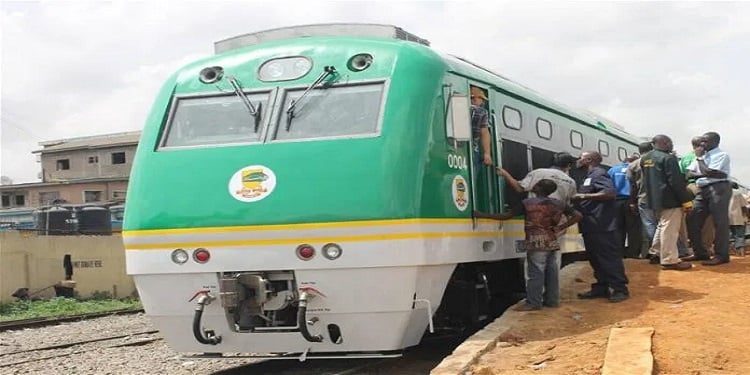The Nigerian Railway Corporation (NRC) witnessed a significant surge in cargo transportation during the second quarter of 2025, moving a total of 159,130 tonnes of goods across its standard and narrow-gauge railway lines. This achievement underscores the growing recognition of rail transport as a crucial component of port evacuation strategies and the overall national logistics network. The bulk of the cargo, amounting to 146,120 tonnes, was transported via the standard gauge line, primarily between Lagos and Ibadan. This included a diverse range of goods, encompassing 35,880 tonnes of cement, 85,600 tonnes of import and export containers, and 24,640 tonnes of other commodities. The remaining 13,010 tonnes were conveyed on the narrow-gauge line, focusing on import and export containers (10,760 tonnes) between Ebute Metta, Iddo, Ijoko, and APM Terminal, and cement deliveries (2,250 tonnes) to Oshogbo and Ilorin. This performance reflects the increasing reliance on rail as a viable alternative to road transport for cargo movement, especially in decongesting Lagos ports.
The NRC’s operational figures reveal the breakdown of cargo movement in terms of train trips. The standard gauge line recorded 26 trips for cement transport, 98 trips for import and export containers, and 17 trips for ENL cargoes. The narrow-gauge operations comprised 49 trips for containers and 5 trips for cement. This data provides valuable insights into the frequency and utilization of both railway lines for different types of cargo. Despite this positive momentum, the NRC faces persistent challenges that impede its operational efficiency and capacity to fully meet the growing demand for rail transport.
Despite the positive growth in cargo volume, the NRC grapples with significant operational challenges, primarily the scarcity of locomotives and wagons. This shortage constrains the number of trips that can be undertaken, effectively limiting the NRC’s capacity to fully capitalize on the increasing demand for rail freight services. The procurement of additional locomotives, spares, and wagons has become a critical priority for the NRC to expand its operational capacity and cater to the rising cargo transport needs. Beyond equipment shortages, the NRC also contends with the persistent issue of vandalism, which targets vital railway infrastructure components such as clips, rails, and sleepers.
The recurring vandalism incidents, occurring across multiple locations, not only pose safety risks but also lead to operational disruptions and delays in cargo schedules. The financial burden of replacing the vandalized track furniture is substantial, and the continuous disruption of operations undermines efforts to maintain shipper confidence in the reliability of rail services. Addressing this security challenge is crucial for ensuring the long-term sustainability and efficiency of rail operations.
Stakeholders within the maritime sector have lauded the NRC’s performance, recognizing the positive impact of increased rail cargo movement on port efficiency and congestion reduction. Industry representatives, including freight forwarders and truck owner associations, have expressed strong support for the NRC’s efforts, emphasizing the alignment with long-standing calls for greater utilization of rail transport in cargo logistics. The rail option provides a crucial alternative to road transport, particularly during periods of road congestion or closures. This multimodal approach contributes significantly to improving the overall fluidity and efficiency of port operations.
Looking ahead, continued investment in enhancing the capacity and security of the Nigerian railway network is essential for consolidating the role of rail in addressing the nation’s cargo transport challenges. Prioritizing the acquisition of additional locomotives and wagons, as well as implementing robust security measures to mitigate vandalism, will be instrumental in maximizing the potential of rail transport to facilitate seamless cargo movement and contribute to the overall growth and efficiency of the Nigerian economy. This strategic investment will further strengthen the NRC’s position as a key player in the national logistics landscape, enabling it to effectively respond to the evolving demands of the cargo transport sector.














